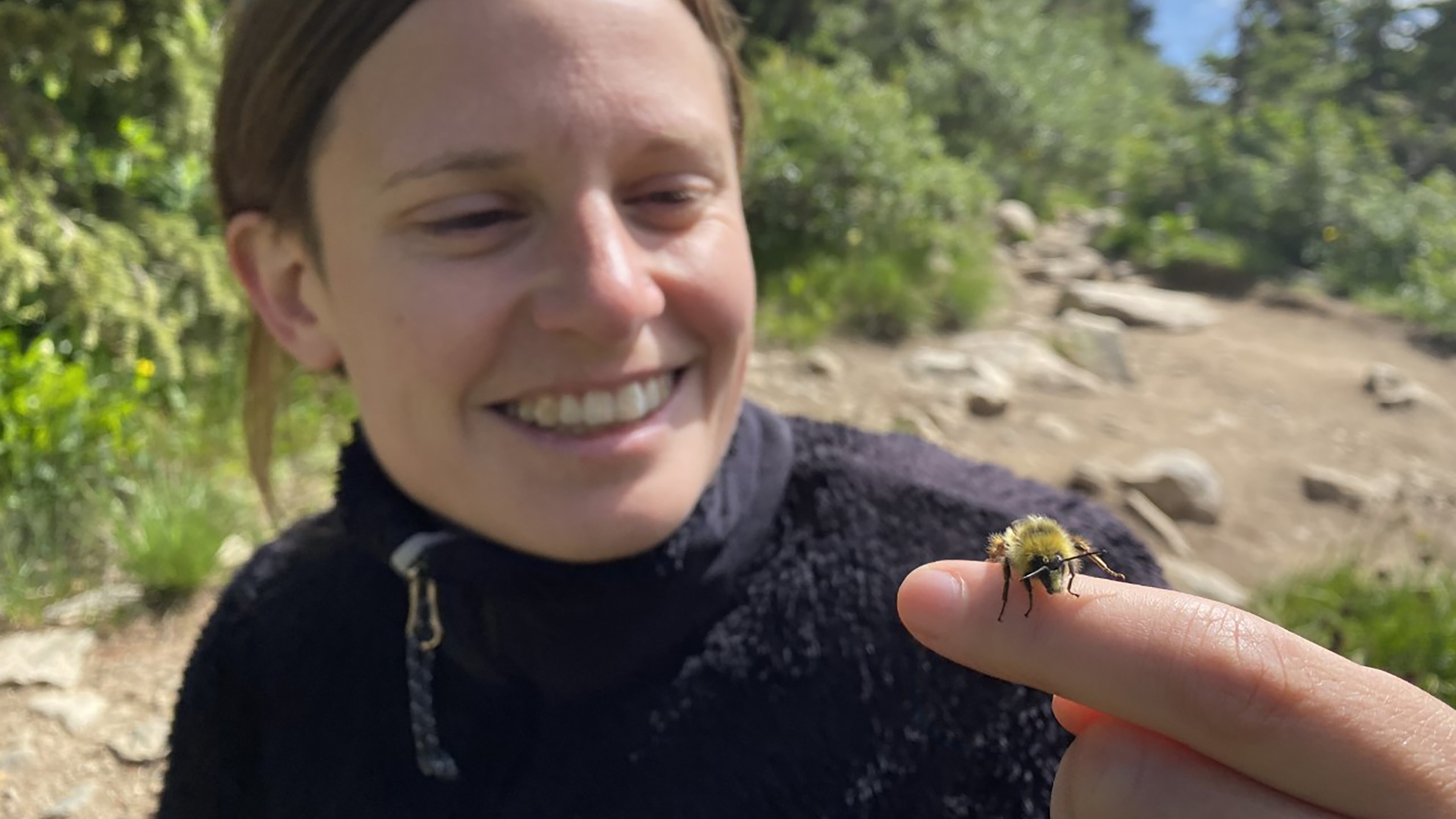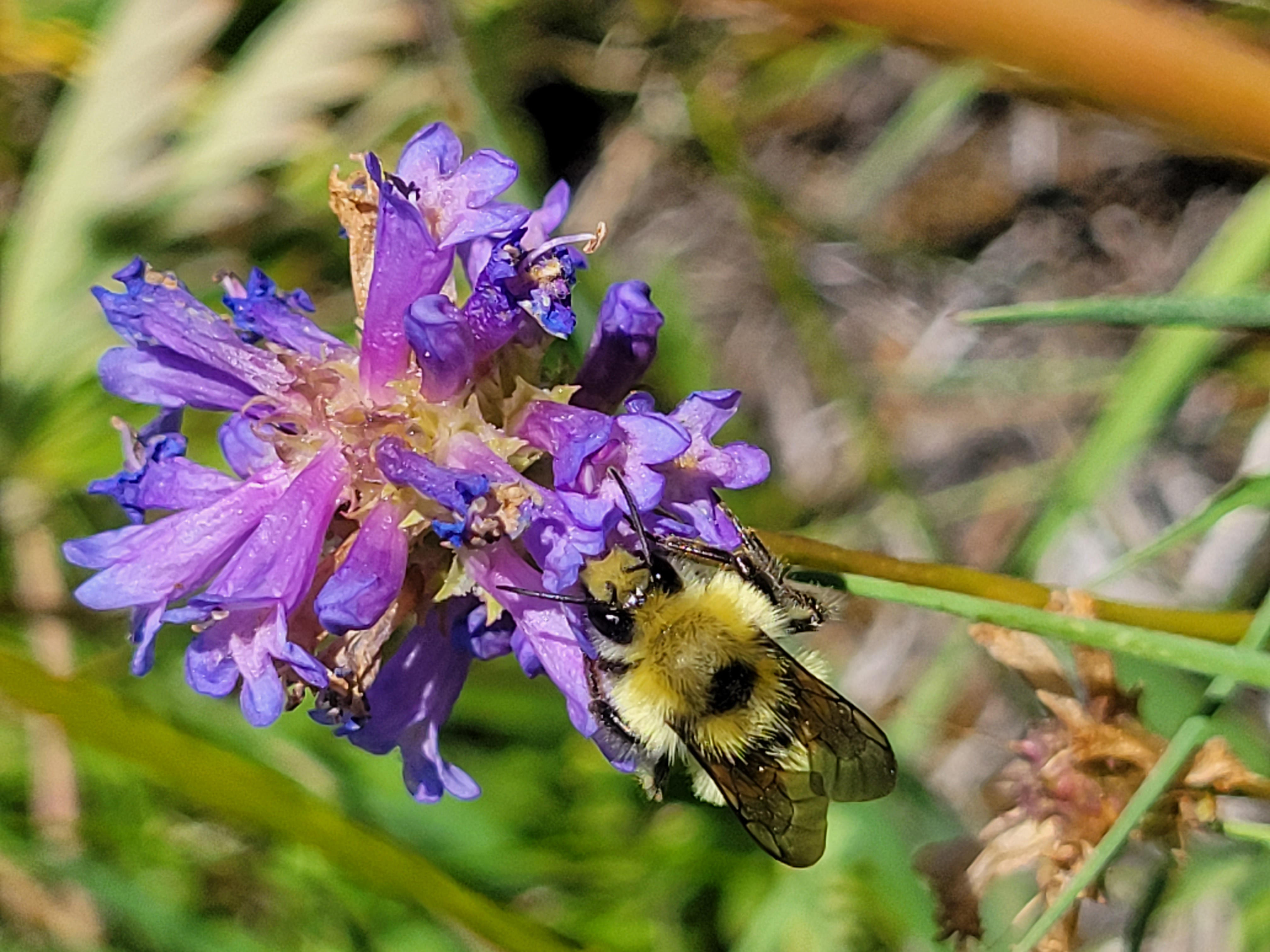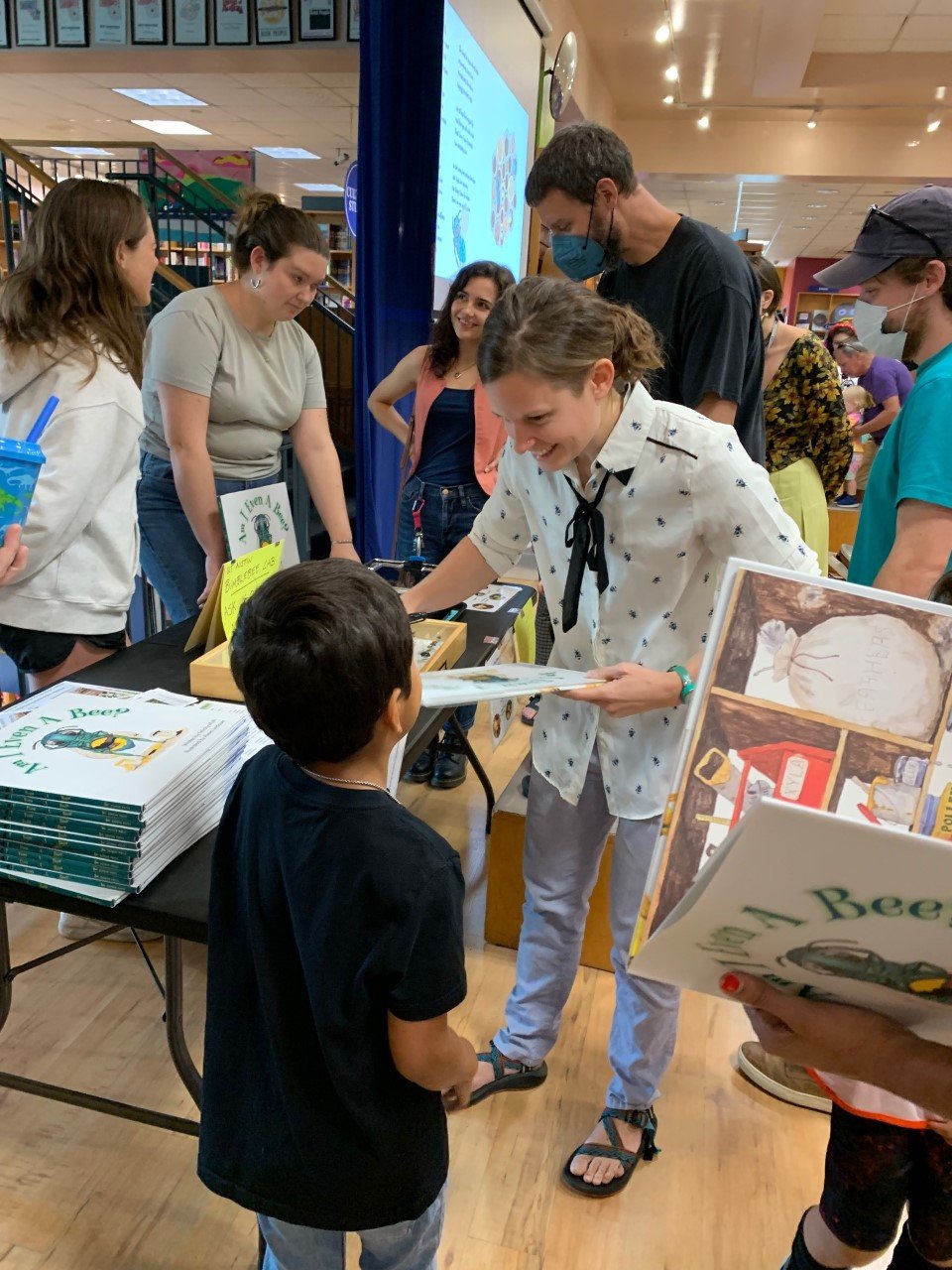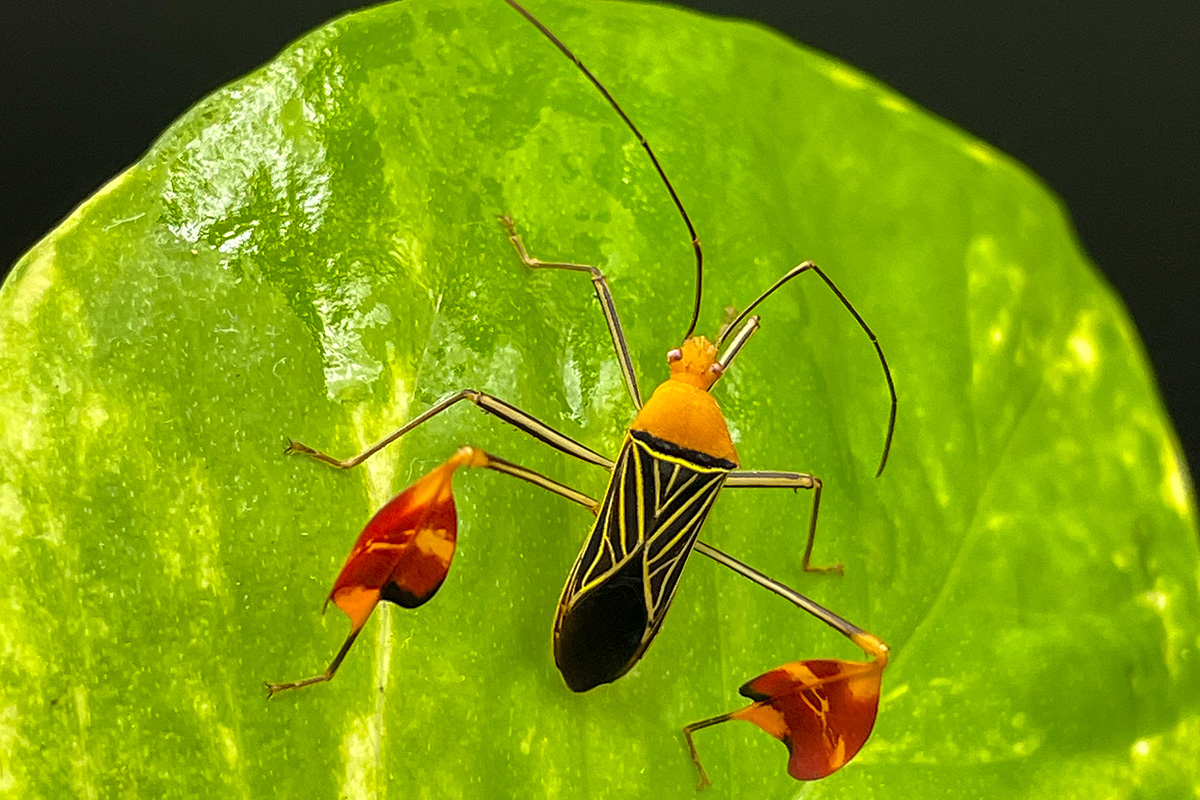Oh Bee-have! UT Scientist’s Book for Children Highlights the Many Facets of Bees
Felicity Muth's fascination with insects from a young age has led her to a career of researching bee cognition and sharing her knowledge with others.

Felicity Muth
Felicity Muth, a UT Austin assistant professor of integrative biology whose work focuses on cognition, didn't always know what animal she would ultimately work with to better understand the living world.
As a graduate student, she focused on bird behavior, examining the cognition involved in nest construction. She had, at one point, planned a postdoctoral position with ants, though that didn't pan out in the end. As a child, Muth had been fascinated by all sorts of insects. In starting her scientific career, she thought about how working with hundreds of insects in the lab, as opposed to only a few birds, might open new possibilities.
And so, about 10 years ago, she began working with bumblebees.
"Once I started this work, I have never looked back," Muth said of the bees. "I find all of their behavior fascinating. I am constantly amazed at what they are capable of."
Muth translated some of her fascination into a new children's book, titled Am I Even a Bee? The book, illustrated by Alexa Lindauer, aims to give young readers access to important information about bees. UT Austin's Lady Bird Johnson Wildflower Center has copies of the book in its gift shop and has plans to host Muth for an event in the spring.
One focus of the book is bees' diversity. There are roughly 4,000 native bee species just in North America. Muth says she wants children to know the abilities and vast differences involved with this single type of insect. When many people think of bees, she says, they tend to think of only honeybees; some—hearing that bees are in trouble—opt to go out and buy honeybees. But honeybees are only one of 20,000 species of bees worldwide.
"People care, but their efforts can be misguided," Muth said.

In studying bumblebee cognition, Muth observes how the insects perceive and learn about pollen. Intelligent creatures, bumblebees have evolved efficient methods of learning about the color and scent of the flowers they visit, aiding in their ability to secure pollen and nectar. Plants that rely on bees for pollination have also evolved to balance the trade-offs between increasing the pollen bees carry from plant to plant and reducing the amount of pollen bees eat or take back to their young. That's because pollen is expensive for plants to produce. The solution: nectar, a relatively cheap reward.
"The plant is distracting the bee from the pollen," Muth said. Ideally, bees strike a balance between nectar and pollen that benefits both the bees and the plants.
Muth's lab works with the eastern bumblebee, Bombus impatiens, on campus and with wild bumblebees at sites in California and Nevada. In addition to researching bee cognition, Muth and her team focus on the effects of neonicotinoid pesticides used in agriculture. While these pesticides are banned in some states, and largely in the European Union, they are still widely used in the U.S., despite research showing negative impacts that fall short of immediate "lethal effects" on bees. The sublethal effects are just as problematic, Muth said. They negatively impact bee behavior, their reproductive systems and their olfactory systems, ultimately leading to bee decline.
Muth sees part of her role as helping to inform the public about what exactly is going on and how everyday people can help. She points out that, if bees aren't able to pollinate plants, this will affect food production as well as ecosystems, leading to declines going all the way up the food chain.
At the individual level, people can choose to not use harmful pesticides in their gardens, Muth says, and they can call on government to take action.
"Whether you place inherent value in the diversity of animals on our planet, ultimately it affects us," Muth said.

Felicity Muth signs a copy of her book Am I Even a Bee? at BookPeople in Austin, Texas.



